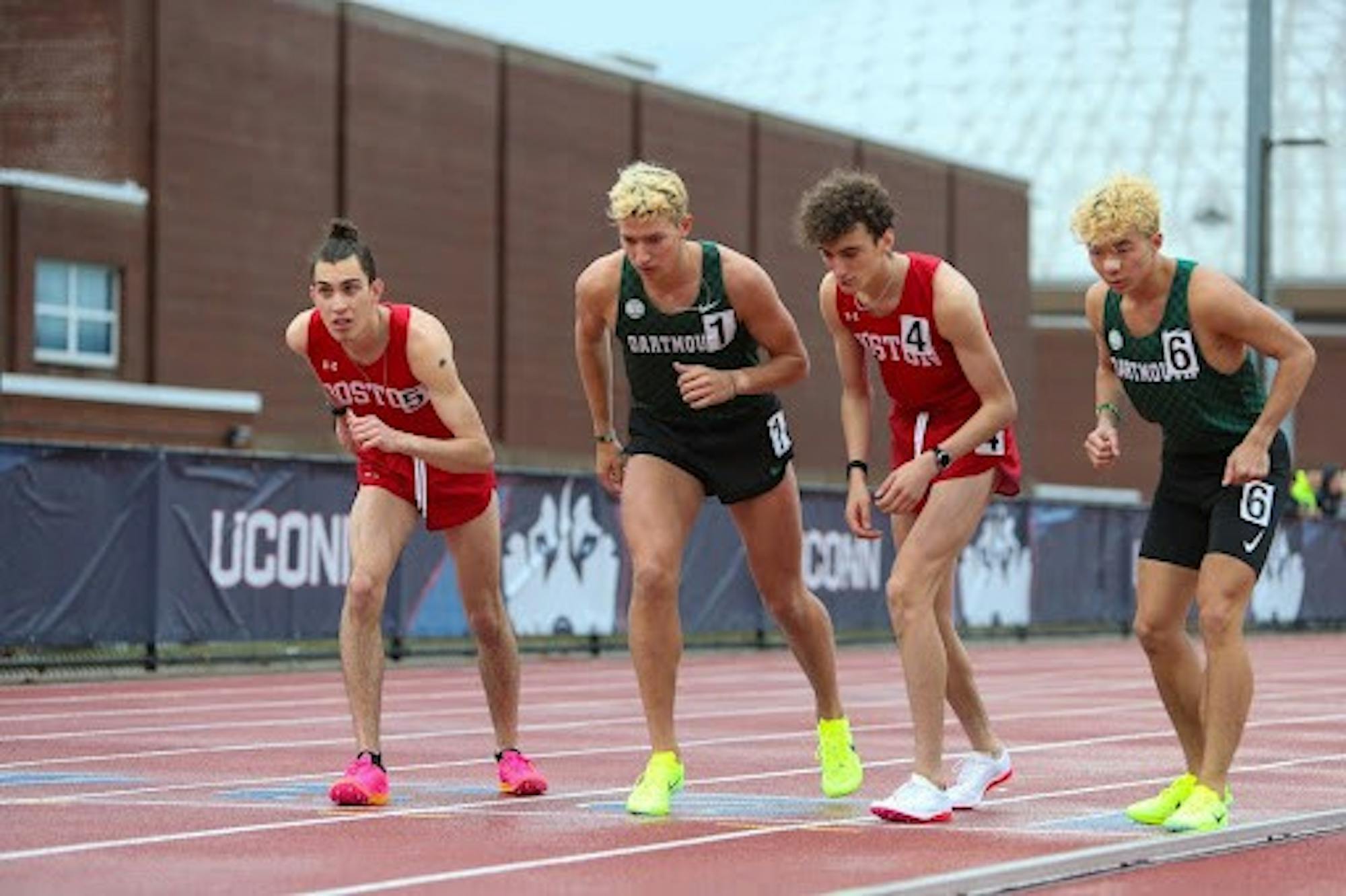Objectively, track and field is not a team sport. In team sports like soccer and basketball, an individual’s success depends on their team’s success. If you do not win, then none of your teammates win either. Track, on the other hand, is often scored on an individual basis — you could win your race, and everyone else on your team could lose theirs. There is also a perceived lack of teamwork: You do not have to pass a ball between teammates in a race, you do not have to cover for your teammates on defense and you certainly do not have a substitute if you get tired. That being said, it would be naive to discount the team aspect of track and field.
Last weekend, at the University of Massachusetts Lowell’s George Davis Invitational, Dartmouth track and field achieved success because of teamwork: two first place finishes, two second place finishes and two personal bests for the men’s team and ten events won with eight personal bests by the women’s team. Going into the meet, we were slated against some of the less-competitive teams in the Northeast, such as the University of New Hampshire, Keene State College and Bentley University. On a weekend where many of us were hoping to run fast times and set new personal bests, it was daunting that we would be attempting to do so without much competition to push us — it is much easier to run fast when you are racing against someone better than yourself.
However, a couple of my teammates volunteered to pace many of us in our races — meaning that they would lead the first portion of the race and set a specific pace that those in the race hoped to run. As a runner, having a pacer gives you someone to chase, which is particularly helpful in a non-competitive field. These teammates were willing to sacrifice their own opportunities for a personal best and focused entirely on leading their teammates to success.
On the men’s side, we had two pacers lead the team. My teammate and training partner Jason Wang ’22 paced me in the 3000 meter steeplechase. From the gun, Jason took the lead and I followed, trusting him like I do in our workouts together to set the proper pace. I stuck to his shoulder as he paced the first 1600m in a perfect 4:54 split. Peeling off the track, he shouted a cheer of encouragement, and I continued with the pace he set for the fifth lap. As the race against the clock continued, however, I struggled to feel the correct pace and slowed down on the sixth. Then, on the seventh and final lap I felt myself tightening up in the cold and crossed the finish line in a time of 9:18 —a handful of seconds off of my goal time, but still a personal best and a win that could not have been achieved without Jason.
The other hero of the day for the men was Davy Appleton ’24. He started the day off pacing Drew Thompson ’22 in the two mile race. Davy ran the first half of the race, setting Drew right on pace to a sub-9 minute effort with a 4:31 mile. After Davy peeled off the track, Drew was placed in the lead and continued the race. Like myself, Drew crossed the line a bit off of his goal in a time of 9:13.
Following that effort, Davy drank a milkshake — seriously, it was called the Cambodia Shake — and laced his shoes up again to pace Colin Donnelly ’24 in the 5000m run. Davy was only supposed to run the first 2000m of the race, given he had already run a fast mile while pacing Drew, and aimed to run a pace of 70 seconds per lap for Donnelly — a 4:40 mile pace. Coming through the 2000m mark, rather than stepping off the track and patting himself on the back after a great pace job, he continued to run. Like a metronome, he hit each lap in a perfect split, carrying Colin through the race. Perhaps the Cambodia Shake gave him an unexpected boost of energy, because everytime he came around, he held up his pointer finger to my coach signaling that he could run one more lap. Finally at the 4000m mark, Davy peeled off and let Colin have the glory of the last 1000m, during which Colin lapped many of his competitors and was the first to cross the finish in a time of 14:40 — just a few seconds off his PR in his first race in nearly a year due to injury.
It was not just on the men’s side that we saw success from pacing, but also on the women’s team. Bella Pietrasiewicz ’25 — after racing the 1500m earlier in the day — paced Annie Jackson ’24 in the 800m dash to winning in a near-personal best of 2:11. Additionally, the trio of Emma Kerimo ’25, Emily Levonas ’24 and Corinne Robitaille ’23 paced Steph Finley ’23 to a win and her personal best in the 5000m with a time of 17:03.
Across the board, the team’s success at the meet was a direct product of a cohesive group of people who care about each other’s success. It was a reminder of the value that being a part of a team can bring to each individual — a lesson that we will remember as we race together and cheer each other at the Ivy League Heptagonal Championships at the University of Pennsylvania this coming weekend.




